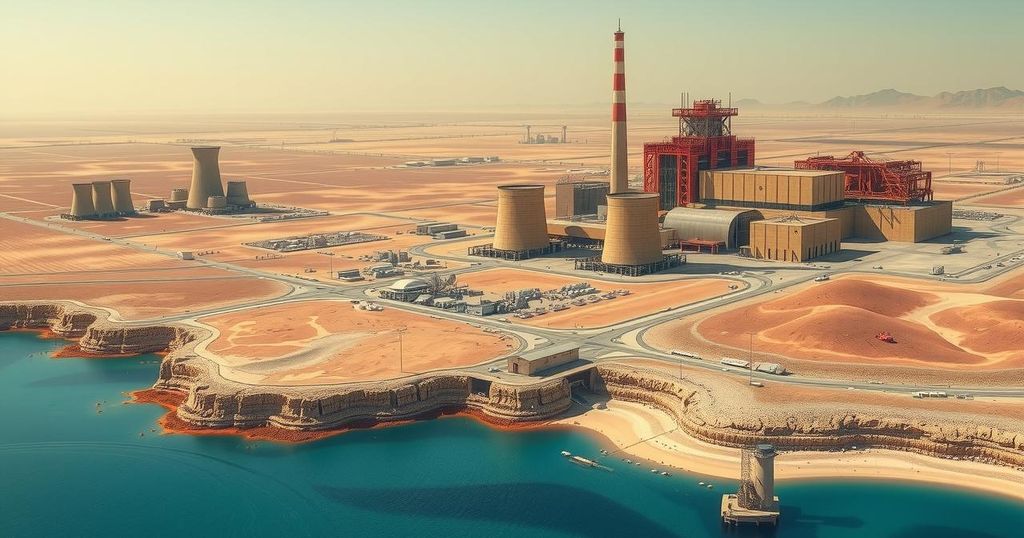Qatar’s Prime Minister warned that an attack on Iran’s nuclear facilities could contaminate local water sources, jeopardizing Gulf nations’ water supply. He emphasized the importance of diplomatic solutions, opposing military actions while highlighting Tehran’s willingness to engage in negotiations. Western nations remain concerned about Iran’s nuclear ambitions following the U.S. withdrawal from the 2015 nuclear agreement.
Qatar’s Prime Minister Sheikh Mohammed bin Abdulrahman bin Jassim Al-Thani has expressed grave concerns regarding the potential ramifications of an attack on Iran’s nuclear facilities on the Gulf coast. In a recent interview with Tucker Carlson, the Prime Minister emphasized that such an assault would contaminate local water sources, leaving Gulf nations without potable water. He stated that Qatar could exhaust its water supply within three days if an attack occurred.
The Prime Minister noted that despite the construction of reservoirs, which enhanced water capacity, the regional vulnerability persists. He cautioned that the devastation would be profound: “No water, no fish, nothing… no life,” highlighting the dire consequences of military action.
Sheikh Mohammed reiterated Qatar’s reliance on desalination for its water needs, a common dependency among Gulf Arab nations due to the arid climate. He pointed out that while Iran operates a nuclear power plant at Bushehr, the critical uranium enrichment facilities are located further inland, beyond the immediate threat.
In light of these concerns, Sheikh Mohammed revealed Qatar’s commitment to a diplomatic approach, opposing military action against Iran. He asserted that Qatar would persist in seeking a peaceful resolution between the U.S. and Iran, affirming that Tehran is open to negotiations aimed at fostering stability within the region.
Western nations have long accused Iran of pursuing nuclear weapons, a claim Iran denies. Following the 2015 nuclear agreement, which was intended to curb Iran’s nuclear ambitions in exchange for sanctions relief, tensions escalated when President Trump unilaterally withdrew from the agreement in 2018.
Overall, the Prime Minister’s statements reflect a strong desire for diplomatic engagement over military interventions, revealing Qatar’s unique position in the regional landscape and its efforts to ensure safety and stability for its people.
In conclusion, Qatar’s Prime Minister has underscored significant risks associated with potential military action against Iran’s nuclear facilities, emphasizing the imminent threat to water supply in the Gulf region. Sheikh Mohammed’s commitment to a diplomatic solution highlights Qatar’s strategic approach in addressing security concerns while fostering regional stability. The underlying tension regarding Iran’s nuclear ambitions continues to necessitate careful consideration of diplomatic engagement over military confrontation.
Original Source: www.iosconews.com






